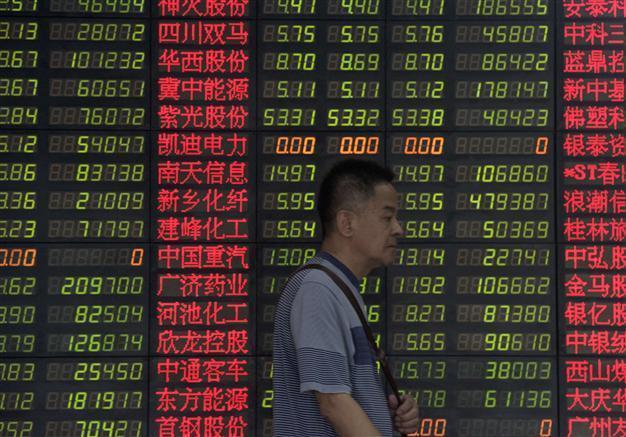Beijing admits stock bubbles, says routs almost over
BEIJING - Agence France-Presse

AFP photo
China’s Central Bank governor and its market regulator have admitted that there were “bubbles” on the country’s stock exchanges, after a spectacular rally was followed by a painful bust, but said the turbulence was coming to an end.The benchmark Shanghai Composite Index by more than 150 percent in the year to June 12, fueled by debt rather than fundamentals and encouraged by authorities.
It has since plummeted nearly 40 percent since then, with official interventions to the tune of hundreds of billions of dollars failing to arrest the declines.
People’s Bank of China (PBoC) Governor Zhou Xiaochuan pointed to the March-June period in particular, when the Shanghai index leaped 70 percent.
“Bubbles continued to build up until mid-June,” he told a G20 meeting of finance ministers and central bank governors in Ankara at the weekend, according to a statement on the PBoC website.
“Since mid-June, three rounds of corrections took place in China’s stock market,” he went on. “The first two did not have international impact, while the third one in late August (had) some global influence.”
Chinese bourses are largely separated from the rest of the world’s financial system by limits on investment from overseas. But news last week of a contraction in an official gauge of Chinese factory activity sent domestic and world markets into a tailspin on worries the economy was headed for a “hard landing”.
“The correction in the stock market has now come close to an end,” Zhou said in the statement, refraining from using the word “burst” and adding the Chinese economy was not “much affected” by the rout.
The market regulator, the China Securities Regulatory Commission (CSRC), echoed his comments in a statement on Sept. 6.
“Gains on the stock market had been too rapid and large, forming stock market bubbles, therefore subsequent plunges and adjustments were inevitable,” it said.
“At present, market risks and bubbles have been released to some extent,” it added.
Growth figure revised down
China on Sept. 7 lowered last year’s economic growth figure to 7.3 percent after concerns about slowing expansion caused global market havoc.
The new number remains the lowest since 1990, when growth plummeted to 3.9 percent. Global stock markets have been pummeled by concerns over slowing growth in the nation, a key driver of the world economy.
The National Bureau of Statistics said on its website it reduced the gross domestic product (GDP) growth figure from the 7.4 percent announced in January after a “preliminary confirmation”. A final confirmation could come in January 2016, it added.
After decades of double-digit expansion, authorities are trying to pull off a tricky rebalancing -- from an investment- and export-led economic model to one where domestic consumer demand drives slower but more sustainable growth.
















